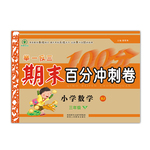
You are ill. You had better _______ the doctor right now.
A. look at B. see C. watch
 举一反三期末百分冲刺卷系列答案
举一反三期末百分冲刺卷系列答案科目:初中英语 来源:2013届北京市门头沟区中考二模英语卷(带解析) 题型:阅读理解
If you have failed in the past to try to make big changes in life,try again now,one tiny step at a time.
Every year it’s the same.As December comes to an end,you think about the new year and all the ways you want to improve your life. But as you start to write down your hopes for the new year,you think about the last year.You excitedly write down all the changes you are going to make,but by the end of January those ideas get lost in your busy life.
Here’s a suggestion:Forget the too big,hard-to-achieve goals(目标) and just think about the small ones.“We often think that we have to do everything in big steps, even though it’s so hard for us to reach it.” said Robert Maurer,who recently wrote the book One Small Step Can Change Your Life.“What we try to do is to begin with such a small step that we can’t find any excuse not to do it.”
“Kaizen”,a Japanese word,is used to mean to change behavior and attitudes(态度).During World War Il,American factory managers were able to increase productivity by trying small, continuous improvements instead of sudden changes.After the war,the idea was brought to a rebuilding Japan.It made Japan develop fast. The Japanese called it “kaizen”, which means “improvement”.
Maurer studied the idea and did some experiments with it. “Kaizen” could possibly help people succeed in doing everything
【小题1】Robert Maurer wrote a book to tell us .
| A.we should do everything in big steps |
| B.how to change one’s life with one small step |
| C.we should try a lot of sudden changes |
| D.how to find a small step without any excuse |
| A.make changes at the end of the year |
| B.do few experiments with “kaizen” |
| C.do things with hard-to-achieve goals |
| D.take a tiny step to achieve big goals |
| A.Robert Maurer studied “kaizen” and found it helpful. |
| B.You can achieve your goals if you are not too busy. |
| C.You can’t find any excuse not to reach a big goal. |
| D.“Kaizen” was brought to Japan during World WarⅡ. |
查看答案和解析>>
科目:初中英语 来源:2012-2013学年北京市门头沟区中考二模英语卷(解析版) 题型:阅读理解
If you have failed in the past to try to make big changes in life,try again now,one tiny step at a time.
Every year it’s the same.As December comes to an end,you think about the new year and all the ways you want to improve your life. But as you start to write down your hopes for the new year,you think about the last year.You excitedly write down all the changes you are going to make,but by the end of January those ideas get lost in your busy life.
Here’s a suggestion:Forget the too big,hard-to-achieve goals(目标) and just think about the small ones.“We often think that we have to do everything in big steps, even though it’s so hard for us to reach it.” said Robert Maurer,who recently wrote the book One Small Step Can Change Your Life.“What we try to do is to begin with such a small step that we can’t find any excuse not to do it.”
“Kaizen”,a Japanese word,is used to mean to change behavior and attitudes(态度).During World War Il,American factory managers were able to increase productivity by trying small, continuous improvements instead of sudden changes.After the war,the idea was brought to a rebuilding Japan.It made Japan develop fast. The Japanese called it “kaizen”, which means “improvement”.
Maurer studied the idea and did some experiments with it. “Kaizen” could possibly help people succeed in doing everything
1.Robert Maurer wrote a book to tell us .
A.we should do everything in big steps
B.how to change one’s life with one small step
C.we should try a lot of sudden changes
D.how to find a small step without any excuse
2.The writer of the passage suggests we should .
A.make changes at the end of the year
B.do few experiments with “kaizen”
C.do things with hard-to-achieve goals
D.take a tiny step to achieve big goals
3.Which of the following is TRUE from the passage?
A.Robert Maurer studied “kaizen” and found it helpful.
B.You can achieve your goals if you are not too busy.
C.You can’t find any excuse not to reach a big goal.
D.“Kaizen” was brought to Japan during World WarⅡ.
查看答案和解析>>
科目:初中英语 来源:期中题 题型:阅读理解
查看答案和解析>>
科目:初中英语 来源:山东省期末题 题型:补全对话,情景问答
| 从Il栏中找出与I栏相匹配的答语。 | ||
| ||
查看答案和解析>>
科目:初中英语 来源:同步题 题型:单选题
查看答案和解析>>
湖北省互联网违法和不良信息举报平台 | 网上有害信息举报专区 | 电信诈骗举报专区 | 涉历史虚无主义有害信息举报专区 | 涉企侵权举报专区
违法和不良信息举报电话:027-86699610 举报邮箱:58377363@163.com